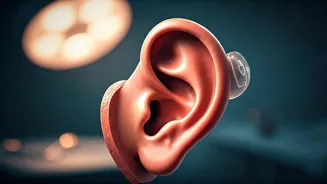Noise: A Silent Killer
Noise pollution, often dismissed as a minor inconvenience, has emerged as a significant threat to public health. Research underscores the harmful effects
of continuous exposure to loud sounds. The scientific community has established a strong link between noise pollution and numerous health problems. Notably, the impact of nocturnal noise disturbances stands out. Lack of sleep during the night, brought on by noise, has both immediate and prolonged effects on health. Understanding this crucial point is key to seeing the importance of measures to reduce noise pollution.
Health Effects Unpacked
The immediate impacts of noise pollution include stress, irritability, and cognitive impairment. Ongoing exposure to elevated noise levels can affect cardiovascular systems and increase the risk of cardiovascular disease. Research indicates a correlation between environmental noise and hypertension, increasing chances of strokes and heart attacks. These health problems can be both physical and psychological and significantly affect overall quality of life. The World Health Organization (WHO) advises limiting noise exposure to safeguard both physical and mental wellness.
Nighttime Noise Risks
Night-time noise pollution is particularly harmful because it disrupts the body's natural sleep cycle. Sleep deprivation, caused by frequent or excessive noise during the night, leads to several physiological changes. These include hormonal imbalances, weakened immune systems, and problems with metabolism. A good night's sleep is essential for the body to recover and function correctly. Continuous sleep disruption is a significant health risk, making night-time noise control a crucial element in public health efforts.
Addressing the Problem
Mitigating noise pollution requires a multi-pronged approach. Urban planning strategies must emphasize noise reduction, such as construction of noise barriers and the selection of low-noise equipment. Regulations should enforce sound limits in residential and commercial areas. Raising public awareness is also essential so people can understand the dangers of noise pollution and support steps to manage noise. By combining policy, planning, and public participation, communities can lower noise levels and improve the health and well-being of residents.
Faith and Sound
The article title, "In the name of faith, worshipping noise" suggests a broader context, and the idea is that sometimes, loud noises, and their impact, can be overlooked, similar to the way certain beliefs can overshadow the impacts of noise pollution on our well-being. The need for critical assessment becomes crucial, advocating for a greater appreciation of sound environments and promoting better health practices. Acknowledging and responding to noise is crucial to improve health.














